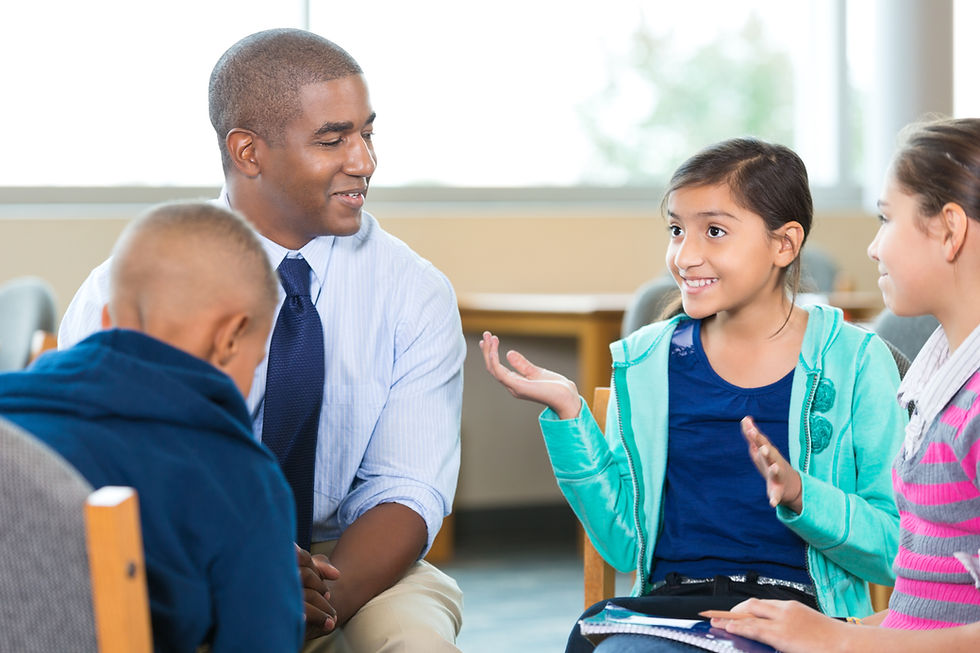Going to school after COVID
- Gabby Johnson

- Sep 4, 2021
- 3 min read
Updated: Nov 6, 2021
Going back to school means that children will socialize with other students. Having spent the last year in isolation, this may trigger social anxiety which is an irrational fear of interaction with others. Children may be a little more self-conscious than usual about what their peers think about them.

As a parent, this period calls for a lot of grace and understanding for your children. A successful academic year will be made possible by the collective effort of both parents and students. To better understand what your children need in this season, we will use the analogy of the emotional cup.
Imagine your child has a cup that requires it be filled with love, attention, care, concern, and security.
Before COVID-19 happened, your child seemed to have their cup full. It was filled with joy from socializing with their friends and having a relatively good and normal life.
In the pandemic, their cup was emptied by isolation, stress, loneliness, and unwarranted change.
Your child’s empty cup has shown up as;
Throwing tantrums
Misbehaving to get your attention
Withdrawing emotionally and keeping to themselves more than usual
Behaving restlessly and impatiently
Stealing from other people’s cups
Now is the time to fill your child’s emotional cup. Because of major disruptions and the trauma of a pandemic, children may not have had the right words or actions to express their emotions and cope with anxiety and that may have shown up in their behavior. What can you do?
Share your feelings to make them feel like they aren’t alone. Stay vulnerable and authentic with your children. Show them that you and everyone else has had the feelings of anxiety that they are dealing with. Remind them that other children are also in the same boat. Acknowledging that their anxiety isn’t unique to them will make them ease back into socializing.
Ask them how you can make going back to school easier for them. Let them verbalize what they think you can do to help them. Practice routines before school begins – bedtimes, mealtimes, school wake-up routines. Also, ask them about what may be making them nervous about the school year which could be different than what you think. Maybe they’re afraid of being bullied or catching up with school. Seek to know their specific concerns so that you know how to address them.
Reassure them that everything will be alright and that you’ll be there for them at the end of the day. It’s the small gestures that will build confidence in them like walking them to class on the first day or leaving them encouraging notes in their lunch boxes. Teach them to focus on the positive and present moments. Remind them what they like most about school and how they will get to do it every day.
Use the following affirmations to fill your child’s emotional cup;
You are strong and brave
You will do great
It’s okay to stop worrying
You will get through this
Take a deep breath with me
The back-to-school jitters are normal and soon the kids will be happy to go back to school. But given the year we just had, children may have more serious issues in which case you need to check in and confirm the underlying problem from a therapist. Reflect on the following questions:
Beyond pandemic trauma, has another tragic event occurred in your family that could make your child anxious? Change of environments, death or illness of a loved one, separation, loss of friendship.
Does your child struggle with separating from caregivers?
Has your child been eating and sleeping well?
Do they have physical symptoms of anxiety-like panic attacks?
Do they find it hard to focus and complete tasks?
If you answered yes to any one of the above questions, it is in the best interest of your child to seek professional help for them. All in all, you and your family will brave this process and emerge on the other side. Soon enough it will be the end of another school year and the cycle will continue. We may never fully get used to living in a pandemic but we can take safety measures to keep ourselves safe.





Comments